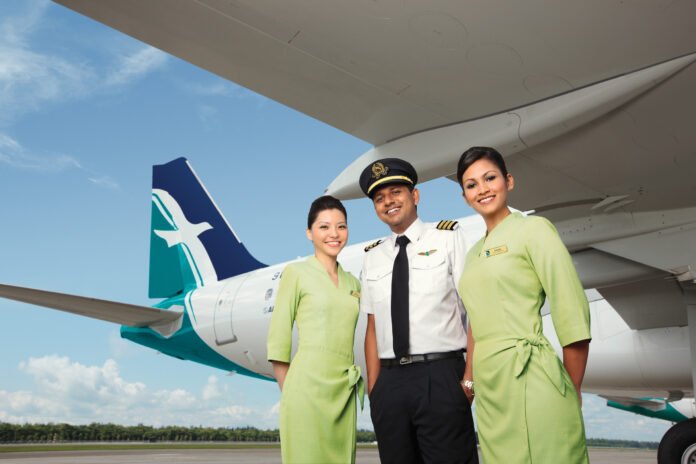A career as a flight steward offers exciting opportunities, allowing individuals to travel the world while ensuring the safety and comfort of passengers. Whether you aspire to work for domestic or international airlines, enrolling in a Air Hostess/ Flight Steward Course in Udaipur can provide the necessary training and knowledge to excel in this field. However, before stepping into the aviation industry, it is essential to understand what flight steward training entails and how to prepare effectively.
Understanding Flight Steward Training
Flight steward training is designed to equip aspiring professionals with the skills, knowledge, and confidence required to manage in-flight operations. Airlines have strict standards, and training programs ensure that candidates meet these expectations. The course covers multiple aspects, from safety procedures to customer service excellence, making it a well-rounded learning experience.
1. Core Modules in Flight Steward Training
The training curriculum includes a combination of theoretical and practical sessions, ensuring comprehensive preparation. Some of the key modules covered are:
- Safety and Emergency Procedures: This includes fire-fighting techniques, first aid training, evacuation protocols, and the use of safety equipment like oxygen masks and life vests.
- Customer Service Excellence: Flight stewards are responsible for providing top-notch service to passengers. Training focuses on handling complaints, managing special requests, and ensuring passenger comfort.
- Grooming and Personality Development: Appearance and demeanor are crucial in the aviation industry. Trainees learn professional etiquette, dress codes, and effective communication skills.
- In-Flight Service and Catering: Training includes instructions on serving food and beverages, understanding dietary restrictions, and maintaining hygiene standards.
- Aviation Regulations and Airline Policies: Understanding international and domestic aviation laws is a key part of flight steward training.
2. Practical Training & Simulations
To ensure real-world preparedness, candidates undergo hands-on training through simulated cabin environments. This involves:
- Mock Emergency Drills: Practicing emergency landings, water evacuations, and CPR techniques.
- Communication Drills: Learning how to handle difficult situations, such as dealing with unruly passengers or medical emergencies.
- Cabin Crew Role Play: Simulating in-flight duties to develop problem-solving and multitasking abilities.
These simulations help trainees gain confidence and develop the necessary skills to manage high-pressure situations efficiently.
How to Prepare for Flight Steward Training
Preparation is key to successfully completing the training program and securing a position with a reputed airline. Here’s how you can get started:
1. Meet the Eligibility Criteria
Most flight steward courses have basic eligibility requirements, which may include:
- A minimum educational qualification of 10+2 or equivalent.
- Proficiency in English and an additional language (preferred by international airlines).
- A pleasant personality and good communication skills.
- Meeting the required height and medical fitness standards as specified by airlines.
2. Enhance Your Communication Skills
As a flight steward, you will interact with passengers from diverse backgrounds. Strong verbal and non-verbal communication skills are crucial. Practice speaking clearly, maintaining eye contact, and improving your body language. You can also work on learning an additional language to enhance your employability.
3. Focus on Physical Fitness & Grooming
Flight stewards need to maintain a presentable appearance and high energy levels throughout their shifts. Maintain good posture, practice skincare and grooming habits, and invest in professional attire. Additionally, staying physically fit is essential, as the job demands long hours of standing, lifting luggage, and assisting passengers.
4. Develop Customer Service Skills
Providing excellent service is one of the core responsibilities of a flight steward. You can enhance your customer service skills by:
- Practicing patience and empathy in daily interactions.
- Learning how to manage conflicts diplomatically.
- Understanding cultural differences and showing respect to passengers from various regions.
5. Gain Basic Knowledge of Aviation Terms & Regulations
Having a foundational understanding of aviation terminology, airline policies, and safety regulations will give you an edge in training. Reading aviation-related books, watching documentaries, or enrolling in an introductory course can be beneficial.
Career Opportunities After Training
Upon completing your flight steward training, multiple career avenues open up in the aviation industry. Graduates can explore roles such as:
- Domestic & International Cabin Crew: Working with airlines on short-haul or long-haul flights.
- Corporate Jet Attendant: Serving high-profile clients on private jets.
- In-Flight Supervisor: Managing junior flight stewards and overseeing cabin operations.
- Aviation Customer Support Roles: Positions at airline offices, handling customer queries and reservations.
Additionally, those interested in ground operations can consider enrolling in an Airport Ground staff college in Udaipur to explore careers in ticketing, baggage handling, and airline operations management.
Final Thoughts
Becoming a flight steward is an exciting career choice, offering travel opportunities, professional growth, and the chance to interact with people from all walks of life. With the right training, preparation, and dedication, you can embark on a successful journey in the aviation industry. By following the structured training process and focusing on skill development, aspiring flight stewards can achieve their dream of working with top airlines.



